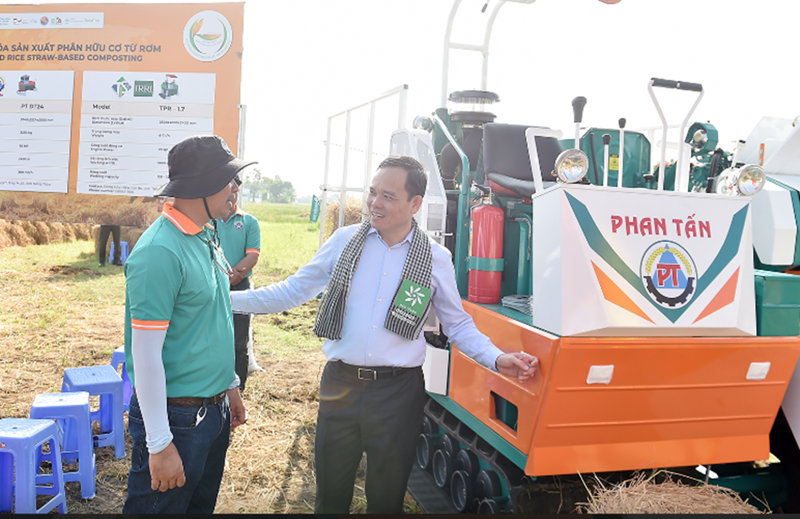A ceremony was held in the Mekong Delta’s Hau Giang province on December 12 to launch a project on developing 1 million ha of high-quality, low-emissions rice linked with green growth in the Mekong Delta region by 2030.
In attendance were Deputy Prime Minister Tran Luu Quang, representatives from the International Rice Research Institute, the World Bank (WB), the Ministry of Agriculture and Rural Development, and leaders of Mekong Delta localities.
Project implementation is expected to help tackle three major issues facing the rice sector in Vietnam and the world: increasing rice output, boosting incomes for farmers, and adapting to and mitigating climate change.
Under the project, greenhouse gas emissions from rice farming are expected to be cut by more than 10 per cent and low-emissions, high-quality rice will account for over 20 per cent of total exports from the Delta, which is a specialized rice farming region.
One million ha of high-quality and low-emissions rice cultivation areas will be established, linked to the restructuring of the production network along the value chain and the application of sustainable farming practices to increase the value and sustainability of the rice industry, improve the efficiency of production and business, boost the incomes and livelihoods of rice farmers, protect the environment, adapt to climate change, reduce greenhouse gas emissions, and contribute to the implementation of Vietnam’s international commitments.
Speaking at the ceremony, Minister of Agriculture and Rural Development Le Minh Hoan said that implementation will include experimental trials of new policies, including paying carbon credits based on performance, focusing on low-emissions production tied to green growth, and developing an agricultural economy with a circular approach.
If this is successfully piloted in the Mekong Delta, the project will be expanded around the country, he said.
Ms. Carolyn Turk, Country Director of the World Bank (WB) in Vietnam, said the WB is committed to accompanying and supporting the Vietnamese Government in implementing this project as well as helping Vietnam take part in the voluntary carbon market to secure sustainable financial sources for economic development.
In the first ten months of this year, Vietnam exported 7.1 million tons of rice, earning $4.7 billion.









 Google translate
Google translate